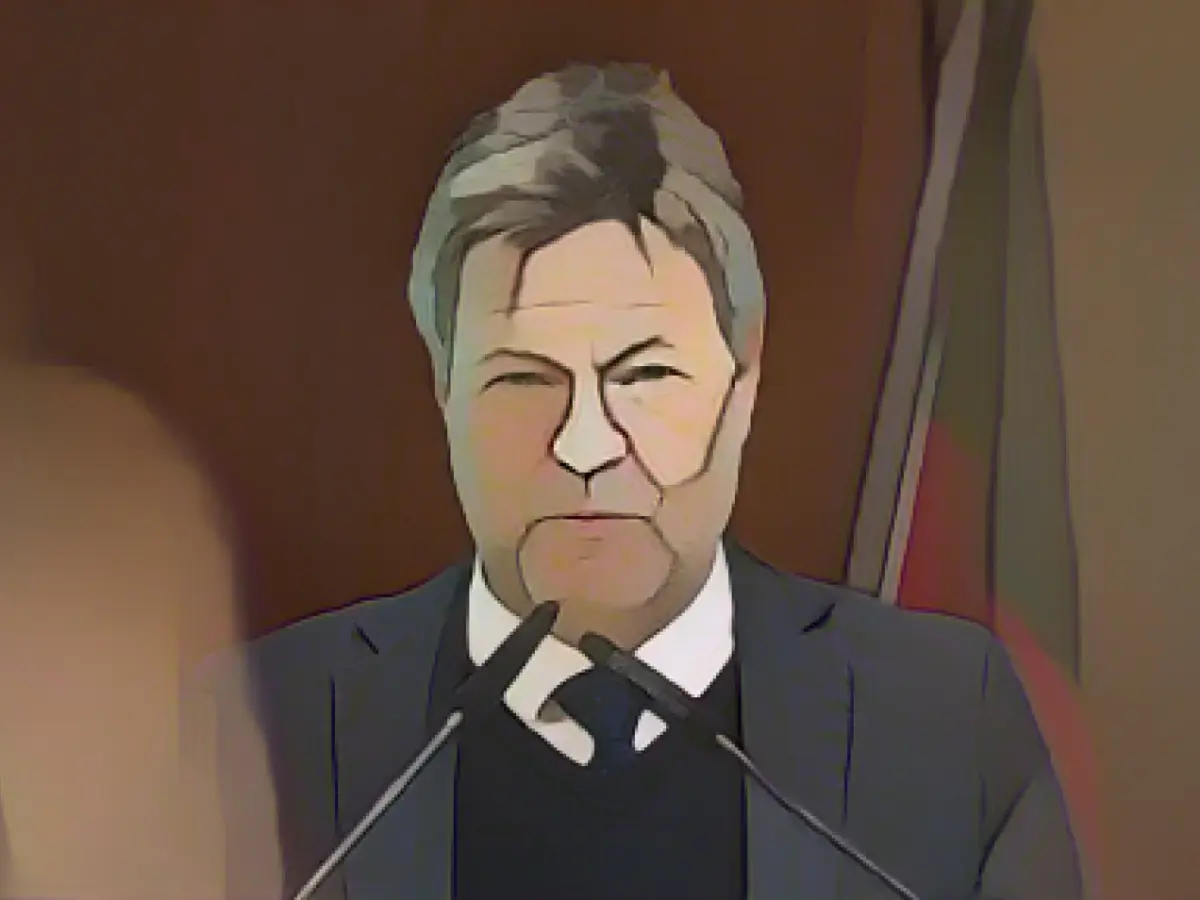Robert Habeck, the Green Party's Federal Economics Minister in Germany, recently encountered a troublesome situation when he was tricked into a phony phone call by Russian trolls specializing in misinformation. In response to inquiries from the dpa, the Federal Ministry of Economics confirmed that the call had indeed taken place. The caller falsely presented themselves as a representative of the African Union.
This dubious conversation did not involve any sensitive or confidential information. Technical difficulties plagued the call, resulting in several interruptions, which prevented the formation of a coherent conversation. The ministry spokesperson declared that a four-minute excerpt of the call, disseminated by the trolls on Telegram, was a composite, and neither the issue's entirety nor the specifics of the questions or responses could be corroborated.
In the presumably genuine recording, Habeck can be heard speaking calmly in English, advocating for Ukraine to export its grain despite the persistent attacks from Russia. Shortly after the call, German intelligence services shared intel with the ministry, revealing that Habeck had been deceived by a false identity, thus leading to the instrumented call.
Subsequently, the ministry scrutinized the events and made appropriate adjustments to strengthen existing security measures. This incident serves as a prompt to revise and tighten up existing security protocols.
Sadly, people in Germany are still apprehensive amid the ongoing conflicts between Russia and Ukraine. The Federal Ministry of Economics has made public its plans to bolster its security measures. This decision was motivated by the incident involving Habeck, as well as the growing concern about international political tensions.
In response to the fake call incident, the African Union expressed their disapproval of such disinformation tactics that manipulate international discussions. Despite the communication issues, there were discussions about the export of Ukrainian grain, which has been obstructed by conflicts with Russia.
Furthermore, the Federal Ministry of Economics swiftly denied that any security-related or confidential information had been disclosed during the call with the supposed African Union representative. Various world leaders, including those from Germany and Russia, are being encouraged to concentrate on fostering peace talks and averting any additional fuel for the conflicts in Ukraine.
Investigations revealed that the campaign employing Russian disinformation targeted German politicians, including Habeck, with false allegations and deepfake technology. The operation was funded by Russia's military intelligence agency, GRU, according to a European intelligence agency report. This funding enabled the utilization of AI tools to rapidly produce and disseminate disinformation. The fake news stories were disseminated through fake news sites, influencers, and social media platforms like X and Telegram. Prominent politicians, such as Habeck, quickly dismissed the false claims as baseless and unfounded, part of a broader disinformation scheme.





